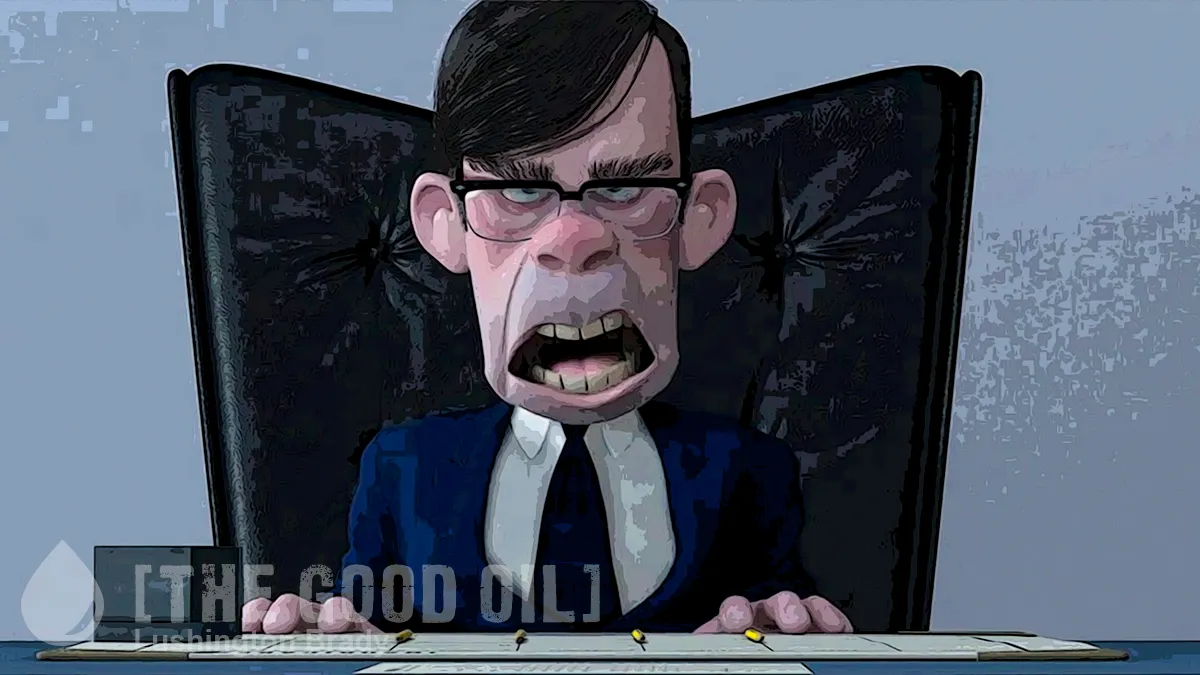Table of Contents
Harlan Ellison’s SF story, “Repent, Harlequin!” said the Ticktockman, is set in a dystopian future society where time-and-motion management resembles a nightmarish blend of Orwell and Kafka.
And so it goes. And so it goes. And so it goes. And so it goes goes goes goes goes tick tock tick tock tick tock and one day we no longer let time serve us, we serve time and we are slaves of the schedule.
Maybe Ellison had looked into a crystal ball and seen an Amazon warehouse.
Workplace surveillance is widespread and largely unregulated.
Depending on who you talk to it is a productivity booster, a morale-crusher, a life-saver, helping companies to comply with laws or putting a CCTV camera in the homes of millions of workers.
It’s not all bad, some argue. Somewhat like China’s Social Credit System, spruikers sell it as a harmonious good.
Installing systems that monitor the workloads and movements of staff at his industrial laundries has seen a 5 per cent boost in productivity, according to owner Warwick Brown.
“Prior to having any sort of counting system in place, the staff didn’t know whether or not they were performing well or not, so at least the staff get a visual aspect to say, ‘Right I’m in the range of where I need to be. I’m working at the right pace,’” Mr Brown said.
Right before he tweaked the software and upped the pace.
Mr Brown, who operates sites in Victoria, South Australia and Queensland, sees safety as one of the key benefits.
For example, as the temperature rises in the factory, staff get extra time off to rest and recover, and screens remind workers when to take their breaks.
On one site, a tracking system ensures no worker spends more than two hours a day in a particularly noisy area.
“It’s a physical job. We need to make sure that everyone’s being rotated correctly so they’re not stuck doing the same job all the time,” he said, adding it had reduced soft-tissue injuries.
Okay, that’s the cuddly sell. Now for the not-so-nice fine print.
For example, truck drivers with closed-circuit television (CCTV) systems are watched as they drive, with their braking and acceleration monitored.
Staff in many retail jobs have every transaction timed and analysed.
Nicole McPherson, the national assistant secretary for the Finance Sector Union, believes her members are the most scrutinised in the nation, describing it as occurring at “every single moment of a worker’s working life”.
“When they log into their computers, it’s recorded. Every interaction with a colleague is recorded. Every interaction with a customer is recorded. There is basically no moment that a finance worker is at work that they are not being subject to some form of surveillance,” she said.
Ms McPherson believes ‘key logging’ to be one of the most insidious forms of workplace surveillance.
“Employers use software to record how many times you press the keys on your keyboard in a shift, and how much you’re moving your mouse during a shift.
“Why that’s so problematic is employers assume that if you’re not typing a lot or not using your mouse a lot, you’re not working.”
All those office workers who thought work-from-home was a gift from the gods are not so pleased to find that there’s an obvious downside. Turning your home into a workplace invites workplace surveillance, like a ouija board summoning demons in a cheap horror movie.
Trends that emerged during the Covid-19 pandemic and working from home arrangements stretched some of this monitoring into the home […]
“Surveillance sounds like a sinister term,” [Innes Willox] the chief executive of business lobby the Australian Industry Group (Ai Group) said.
We prefer to think of it as ‘positive’ spying.
“But it’s really necessary for key aspects of work, for health and safety reasons, for compliance, for learning, for business and also for record keeping.”
“There’s a whole range of reasons that a business does need to track and keep an eye on its workforce, and often that’s for the benefit of the workforce itself. Surveillance really helps businesses get better. It also protects businesses.”
Businesses have obligations to their customers, such as to treat them fairly and to provide services they’re paid for.
Why am I reminded of Gilbert Huph from The Incredibles?
Where will it all end? In the sort of dystopia Harlan Ellison imagined?
What they had done, was devise a method of curtailing the amount of life a person could have. If he was 10 minutes late, he lost 10 minutes of his life. An hour was proportionately worth more revocation. If someone was consistently tardy, he might find himself, on a Sunday night, receiving a communiqué from the Master Timekeeper that his time had run out, and he would be “turned off” at high noon on Monday, please straighten your affairs, sir, madame or bisex.
He even got the gender confusion right.









